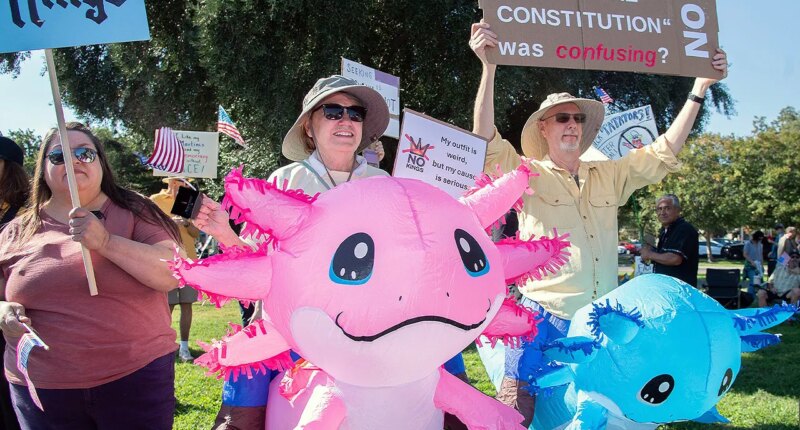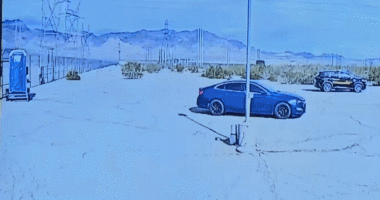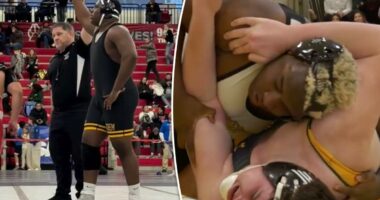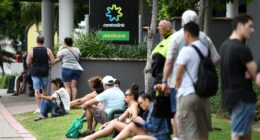Share this @internewscast.com
At last weekend’s “No Kings” protest in Washington, D.C., the sight of inflatable chickens floating above the crowd captured the spirit of the event. This gathering, primarily consisting of educated White women in their 40s as per demographic research, symbolized a unique fusion of emotional release and civic engagement.
Psychotherapist Jonathan Alpert provided insight into the phenomenon, suggesting that these protests reflect a new era where emotional expression and activism are increasingly intertwined. “What we’re seeing is a kind of group therapy playing out in the streets,” he explained in an interview with Fox News Digital.
Among the participants were individuals like Louise Stark and Ken Hughes, who donned inflatable axolotl costumes as they joined thousands in the second “No Kings” protest. This colorful display was captured by Clifford Oto of The Stockton Record and distributed by the USA TODAY Network via Imagn Images.
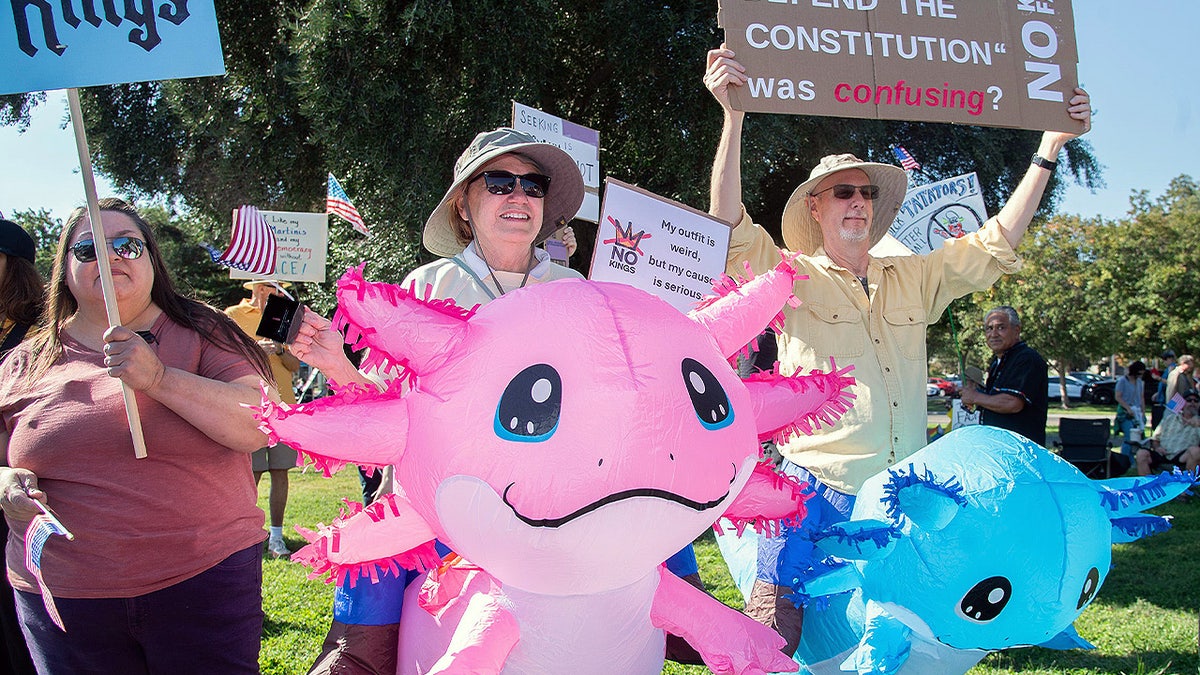
The protest attracted a large turnout in the capital and inspired similar demonstrations nationwide. Participants rallied against what they perceived as former President Donald Trump’s authoritarian tendencies and his alleged “kingship.”
Researchers from American University, who focus on analyzing protest movements, highlighted in a report first covered by Axios that the typical attendee in D.C. was an educated White woman in her 40s. These individuals often found out about the protest through personal networks or social media, illustrating how digital platforms continue to play a crucial role in organizing modern-day activism.
According to researchers at American University who track protest movements, and whose findings were first reported by Axios, the typical D.C. attendee was an educated White woman in her 40s who learned about the demonstration through friends or social media.
“The ‘No Kings’ movement allows people to feel belonging and community,” Alpert said. “Sharing grievances with like-minded people feels good, but it doesn’t necessarily change anything.”
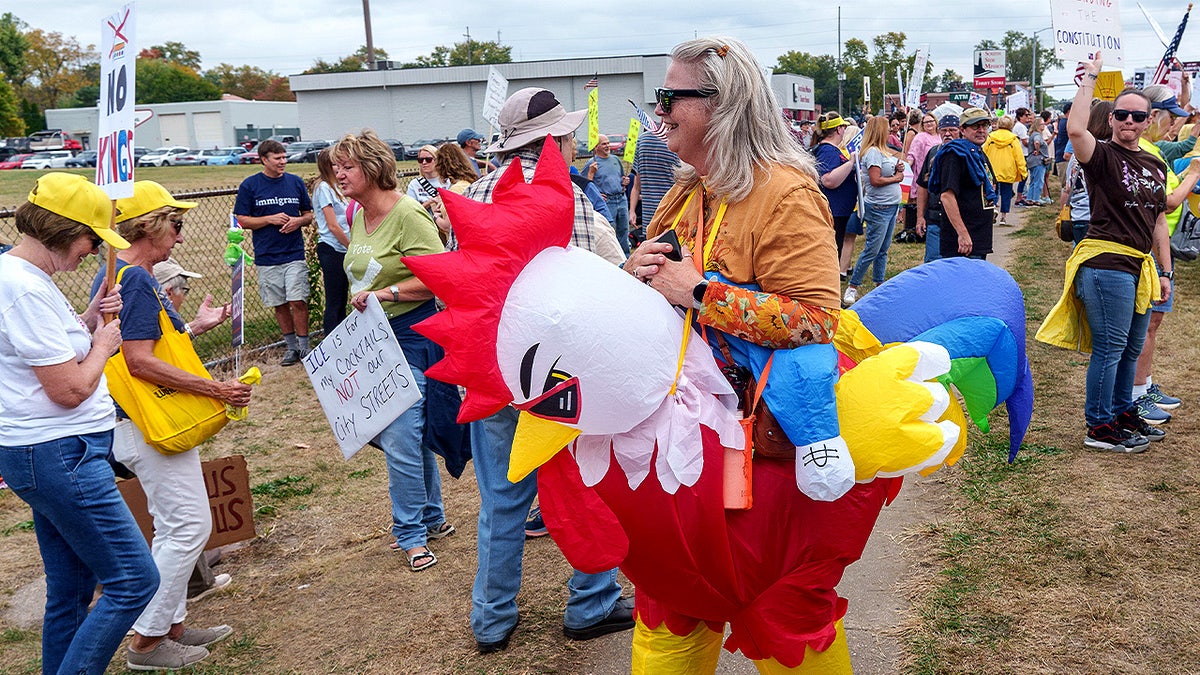
Dr. Jeanine Standard of Canton sports an inflatable chicken suit as she joins hundreds of other protesters for a “No Kings” rally Saturday, Oct. 18, 2025 along War Memorial Drive near Peoria Stadium. (Matt Dayhoff / Journal Star / USA TODAY Network via Imagn Images)
Alpert, who’s the author of his forthcoming book “Therapy Nation,” said that “therapy speak” is everywhere in our culture.
“Therapy speak is everywhere — in dating apps, on the news, even in political rallies,” he said. “People start labeling others as narcissists or traumatized when those aren’t clinical diagnoses.”

Demonstrators in inflatable costumes rally on Pennsylvania Avenue during a No Kings protest in Washington, Saturday, Oct. 18, 2025. (AP Photo/Jose Luis Magana)
Alpert sees that hunger for connection as central to the “No Kings” phenomenon.
“People are craving community, and this gives them a place to channel that. They’re surrounded by others who validate how they feel, and that validation can be addictive,” he said. “Some protesters are equating the ‘No Kings’ movement with the Civil Rights movement. In their minds, there’s an equivalency, but there really isn’t. They want to be part of something historically meaningful — and that longing can distort perspective.”
That fleeting catharsis, Alpert added, can also mask something darker.
“A lot of times people are unhappy in their own lives,” he said. “They may have anxiety or anger, and they project that onto others. That’s partly what we’re seeing play out at these rallies.”
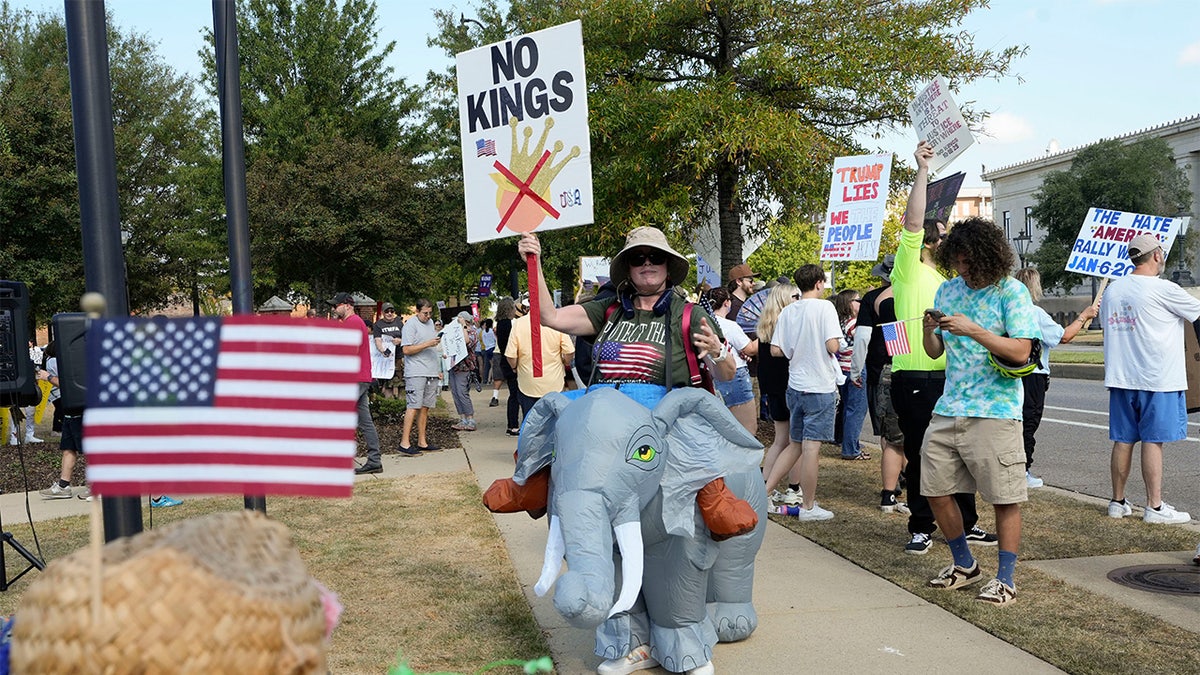
Kim Armstrong wears an inflatable elephant costume at Government Plaza in Tuscaloosa, Alabama as she takes part in the No Kings protest, a nationwide protest against the presidency of Donald Trump. (Gary Cosby Jr. / USA TODAY Network via Imagn Images)
Why are people wearing inflatable costumes to protests?
During “No Kings” protests across the nation last Saturday, individuals sporting inflatable T. rex, elephants and other brightly colored costumes flooded the streets. Supporters say the inflatable costumes draw attention without violence. The tactic started in Portland, Oregon, during protests against U.S. Immigration and Customs Enforcement operations.
“They want us to be violent,” protester Claudia Schultz, wearing an inflatable pig costume, told the Miami Herald. “You can’t get any less violent than this.”
